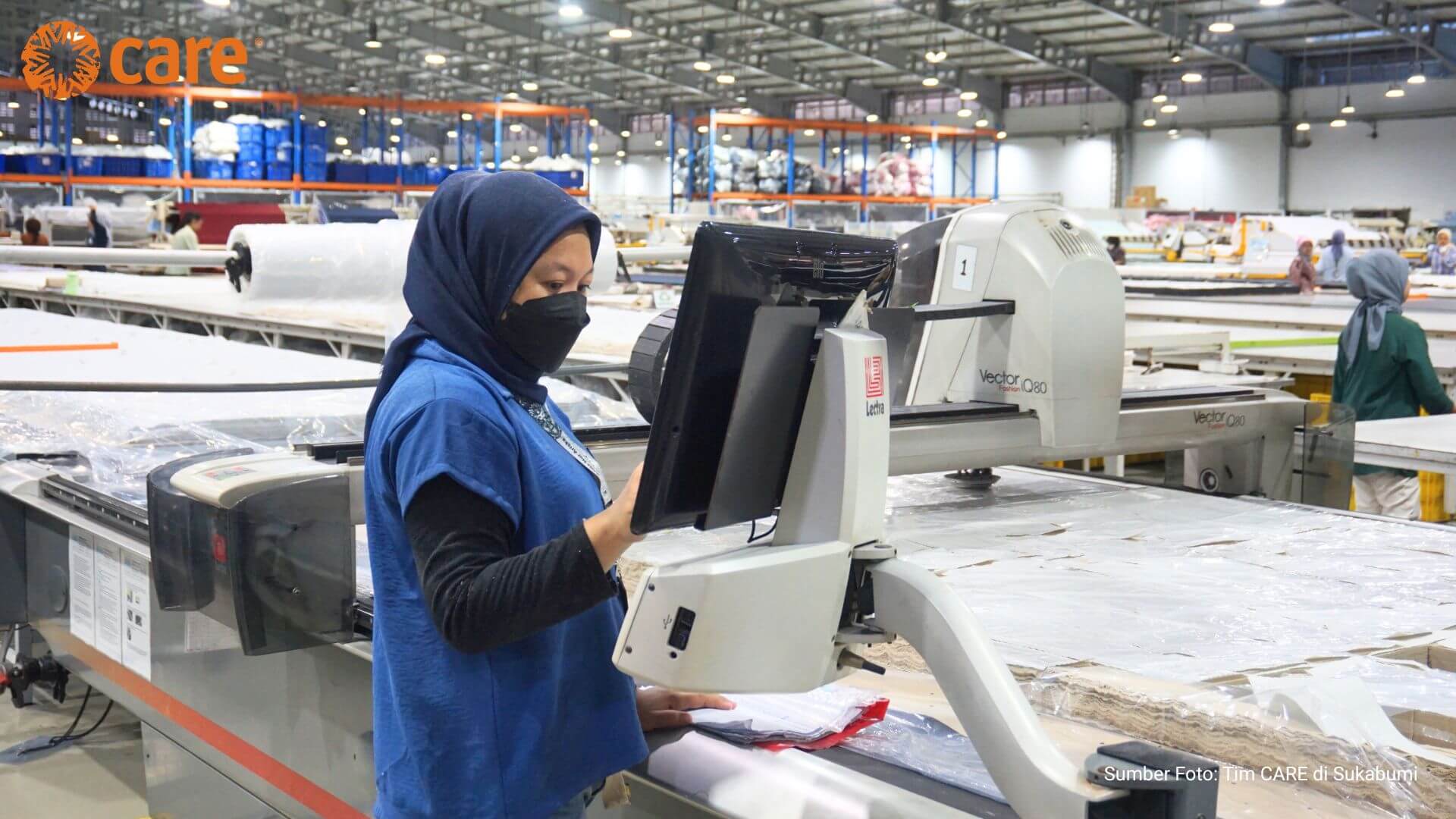A 2024 study by the Global Labor Institute, Cornell University, reveals that climate change is driving rising temperatures and extreme heat. The study highlights that Bangladesh, Vietnam, and Pakistan have experienced scorching heat above 30.5 degrees Celsius, with a 42% increase in extreme heat days during 2020–2024 compared to 2005–2009. The International Labour Organization (ILO) reports that more than 2.4 billion workers worldwide are exposed to excessive heat, resulting in over 22.85 million cases of heat-related injuries each year, including fatigue, dehydration, fainting, and more.
Similar conditions also loom over women workers in Indonesia’s garment factories. Recognizing these challenges, CARE Indonesia (Yayasan CARE Peduli/YCP), in collaboration with CARE USA and CARE Impact Partners (CIP), has developed the Gather, Exchange & Navigate (GEN) Network to bring together garment companies in Indonesia to discuss and collectively seek solutions to the impacts of climate change on women workers.
According to Yohana Tantria, Project Manager of CARE Indonesia, climate change has created challenges for women working in the garment industry, including extreme weather, floods, unpredictable rainfall, and water scarcity.
“The garment industry in Indonesia employs around 3.5 million people, the majority of whom are women about 80 percent. Therefore, adopting climate adaptation measures is essential to ensure safe spaces for women workers,” she explained.
Yohana added that the nine GEN member companies attending the meeting identified extreme heat as the most pressing issue. In some production areas, temperatures frequently exceed 30 degrees Celsius, with reports of packing departments reaching as high as 38 degrees Celsius. For workers particularly those in sewing, finishing, and ironing this heat causes dizziness, headaches, fatigue, and nausea.
“These symptoms not only affect individual well-being but also reduce concentration, slow production, and increase absenteeism. When attendance and production targets are not met, layoffs can occur. For married women without economic independence, this heightens the risk of gender-based violence at home,” Yohana added.
She further explained that as part of climate adaptation steps for garment factory workers, the GEN Network is working to gradually improve ventilation, replace uniforms with cooler fabrics, issue hydration reminders, and provide free drinking water. According to Yohana, several companies have also introduced workplace protocols to address heat stress, supported by training for first aid teams and the establishment of emergency hotlines.
“Some companies have even introduced the initiative of assigning ‘water men’ workers tasked with distributing drinking water directly to each worker. This reduces the risk of dehydration and minimizes the time workers spend away from their stations, thereby improving productivity while fostering a culture of care for worker well-being,” she said.
To ensure the sustainability of these climate adaptation efforts, Yohana emphasized that CARE Indonesia and GEN Network member companies hold monthly discussions to review progress and address challenges. In August 2025, GEN Network member companies also organized workplace campaigns on climate change and the prevention of gender-based violence.
Writer: Kukuh A. Tohari
Editor: Swiny Adestika




